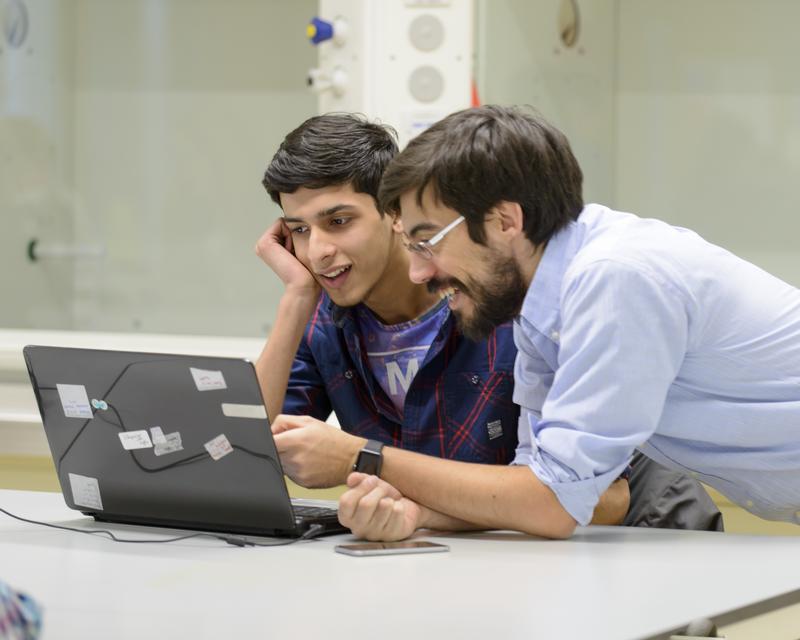
Open online courses
Open online courses are online educational programs that provide free and open access to a wide range of academic content.
Courses are offered by universities and organisations from around the world and typically include video lectures, readings, interactive quizzes and discussion forums, allowing learners to engage with the material and interact with a global community of students. Open online courses offer the flexibility to learn at your own pace, making them a valuable resource for supplementing your PhD studies with additional knowledge and skills, as well as connecting with experts and peers in your field of interest.
While there may be costs associated with earning a certificate of completion for the courses below, all the content can be accessed free of charge by selecting the ‘audit only’ option when enrolling. Where a course has been 'archived', you can still access and review all the course content, but interactive elements such as discussion boards will no longer be active.
(opens in a new window)Writing

The following courses cover a spectrum of essential academic and scientific communication competencies, providing valuable resources for students at various stages of their research journey.
- (opens in a new window)Academic English – How to Write a Thesis: Designed for anyone in the early stages of writing an academic research project, this course takes you through the key stages of planning, drafting, writing and revising a research thesis, dissertation or journal article.
- (opens in a new window)Good with Words – Writing and Editing Specialisation: This course covers word choice and word order, structure and organisation, drafting, and revising. The skills developed in this course range from presenting complex information in reader-friendly ways to giving and receiving high-quality feedback and consistently meeting deadlines.
- (opens in a new window)How to Write and Publish a Scientific Paper: In this project-based course, you will outline a complete scientific paper, choose an appropriate journal to which you'll submit the finished paper for publication, and prepare a checklist that will allow you to independently judge whether your paper is ready to submit.
- (opens in a new window)Writing in the Sciences: This course teaches scientists to become more effective writers, using practical examples and exercises. Topics include principles of good writing, tricks for writing faster and with less anxiety, the format of a scientific manuscript, peer review, grant writing, ethical issues in scientific publication, and writing for general audiences.
(opens in a new window)Personal and professional development

The following courses cover transferable skills relevant to PhD students, such as communication and negotiation, leadership, open science, and presentation skills.
- (opens in a new window)Enhancing Communication and Negotiation Skills for PhD Candidates: This course is designed to equip PhD students with the practical skills to effectively communicate their research to diverse audiences. Topics include crafting a compelling key message, adapting your message for different audiences, communicating to non-specialist audiences, and using social media to communicate your research.
- (opens in a new window)Personal Effectiveness and Leadership: This course is designed to enhance PhD students’ self-awareness, productivity and leadership skills. Topics include dealing with stress and uncertainty, enhancing time management and productivity, developing leadership skills and cultivating interdisciplinary collaboration.
- (opens in a new window)Good with Words – Speaking and Presenting Specialisation: This specialisation is designed to help you successfully connect with your intended audience, improve your confidence in presenting, and enhance the clarity of your message and the effectiveness of your delivery.
- (opens in a new window)Research for Impact: This course covers the five elements of the Research for Impact approach: Theory of Change, Stakeholder Engagement and Strategic Partnerships, Strategic Communication, Capacity Development, and Influencing.
- (opens in a new window)An introductory course to open science for early career researchers: This course will provide you with a scaffolding to understand the core concepts of open science and signpost you to useful links and resources should you wish to delve deeper and start practising open science in your own work.
(opens in a new window)Staying well

The following courses will support you to stay well during your PhD journey, covering topics such as mindfulness and stress reduction techniques, resiliency, and overall mental and emotional health. In addition, you may also like to review our dedicated Staying Well webpage.
- (opens in a new window)How to Survive Your PhD: This course is designed to help PhD students and their research supervisors to better understand the emotional lives of research students. Topics covered include building confidence as a researcher and dealing with frustration, loneliness and boredom in your degree programme.
- (opens in a new window)Mindfulness – An Approach to Stress Reduction: This course is focused on developing mindfulness skills and techniques, enhancing self-regulation and self-awareness, and improving body awareness, with a strong emphasis on stress management and attentional skills.
- (opens in a new window)Mindfulness and Wellbeing – Foundations: This course provides a broad overview of the fundamental concepts, principles and practices of mindfulness. It aims to improve your attention, deepen your understanding of the mind/body connection, enhance resilience, and help you to establish a regular meditation routine.
- (opens in a new window)Becoming a Resilient Person – The Science of Stress Management: This course will help you to learn and use specific resilience skills (such as optimistic thinking, relaxation strategies, choosing one’s attention) and positive routines (good sleep, scheduling in fun, and so on) to better manage stress, bounce back quicker after a setback and be more effective in your academic and vocational pursuits.

Useful links
- (opens in a new window)Coursera Offers self-paced guided projects and on-demand courses on a variety of subjects
- (opens in a new window)DocEnhance Provides free online transferable skills courses for PhD students and research supervisors
- (opens in a new window)EdX Offers online courses in a vast range of subjects, from arts to sciences and more
- (opens in a new window)MIT Open Courseware A free and open collection of material from thousands of MIT courses, covering the entire MIT curriculum
- (opens in a new window)Future Learn Offers an expansive portfolio of online courses, with a focus on business, teaching, healthcare and IT courses
